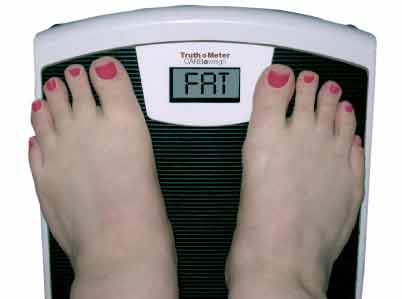We’ve come to realize that most people that are already involved in a weight loss program actually know what they should be doing to lose weight. They know veggies trumped cookies, exercise trumped couches, and smart choices always trumped impulsive fridge-foraging at midnight. But then, even though people actually did everything right, but still couldn’t get the results they wanted.
What most have failed to realize though is that WHY trumps WHAT. What people are doing is less important than why they are or aren’t.
If you’re like most people who’ve had some success but then stalled, you probably started your plan hell-bent on success and full of confidence. You hammered your exercise plan and you stuck to your diet. But then something happened. That something is WHY you stopped doing what you were doing.
There are four primary categories of barriers that prevent people from having success losing weight, but as is the case with any obstacle, there’s always a way to get around it.
Fat-Loss Barrier #1: Physiological Challenges

Physiological barriers associate with efficient weight loss usually involve disorders, diseases, or the medications used to treat those issues. For example, Diabetes can bring about worries of sudden blood sugar drops in those taking insulin making them hesitant to exercise. Heart conditions can make it difficult to exercise without concern about safety whether or not these fears are actually warranted. And that’s not even considering that some medications can actually lead to weight gain.
Remedy
First of all, if you’ve noticed that you’re not losing weight as you’re supposed to, you should see your doctor to make sure you don’t have some underlying condition that’s influencing your weight. And talk to your doctor about medications that may cause weight gain.
Fat-Loss Barrier #2: Mechanical Challenges

The main mechanical challenge one could ever face is pain. This can be a result of arthritis, fibromyalgia, plantar fasciitis, back pain, or just a nagging injury that refuses to go away. This can be a great limitation to your workout routine and hence limiting the whole weight loss process as well.
Another usual example of a mechanical challenge is obstructive sleep apnea, which can affect people with modest weight gain and result in the blocking of the airway during sleep. What’s worse is that you might not even know if you have it.
Remedy
If you have ongoing shoulder, neck, or back pain and it’s preventing you from exercise, get it checked out. Many physiotherapists and other therapists can make a rapid difference in your pain and get you back to training in a hurry.
For more chronic conditions like arthritis that can’t be fully alleviated by medication or therapy, consider finding resources or people near you for cognitive behavioural therapy to help you better manage (and live with) the pain you do have. It won’t eliminate the pain, but will help you to get through it and hopefully be able to return to training.
If your weight loss is resistant and you’re experiencing a lot of snoring, daytime drowsiness and other symptoms of this problem, you should talk to your doctor about sleep apnea. Getting diagnosed and using a CPAP device to keep the airway open at night may be all you need to get your weight moving again.
Fat-Loss Barrier #3: Financial Challenges

Let’s face it, purchasing lean proteins, fresh fruits and vegetables and other healthy foods can get expensive, especially with those for limited income. Add in the cost of gym memberships, exercise equipment, personal training or weight loss programs and all whatnot, and you’re looking at potentially expensive solutions for weight loss.
Remedy
With the large number of body-weight workouts available and information on the internet, gym memberships are no longer a requirement for getting fit. You could save your money and still lose weight efficiently without.
Recent studies indicate that shorter, higher intensity workouts that don’t require much time to complete can be just as effective for weight loss.
Fat-Loss Barrier #4: Psychosocial Challenges

It’s no new news that psychiatric disorders can impact your ability to lose weight. Depression especially, has been related to weight gain, and failure to deal with this illness can potentially set you up for failure in any weight loss attempt.
Attention deficit disorder (with or without hyperactivity) can lead to impulsive behaviours regarding food and activity and make it difficult even for the most determined person to stay on their plan.
And stressful or even traumatic life events can have serious long term implications for weight loss. People sometimes maintain their body weight as a subconscious protection mechanism against those who might seek to harm them.
Remedy
If you’ve noticed that you have any of the aforementioned disorders, see your physician as soon as possible to help you deal with them.
On your own, you could deal with these sociological issues by journaling your food and beverage intake. More importantly, each time you eat, record why specifically you ate what you chose, and how much of it you ate.
While this might be tiresome, you would discover that your choices to eat certain things at certain times is not because you’re hungry, but because of things like availability of food, perceived cravings for specific types of food (not actual hunger), and just plain old social convention.
Once you are aware of these things you can begin asking yourself before eating why you’re eating and why you’ve chosen the specific item you’ve decided to eat. Focusing on eating foods primarily for true hunger will enable you to begin chipping away at the excess calories consumed for other reasons.
Conclusion
While obstacles can often seem to stand between you and your goals, they’re often there to allow us to demonstrate how badly we truly want to achieve those goals. Once you’ve identified your personal barriers to weight loss, you can blast through them to success.
WhatsApp number: +971565830067 (Just send us code 14662 and we will get back to you ASAP)
Contact Us: Click here to send us your details or fill in the form below.
You can get in touch with us 24/7 and one of our experts will not only give you a free consultation but also help you pick out an appropriate male or female personal trainer to meet your needs. One-on-one personal training lessons are available in Dubai, Abu Dhabi, Sharjah, Ajman and RAK.
______________________________